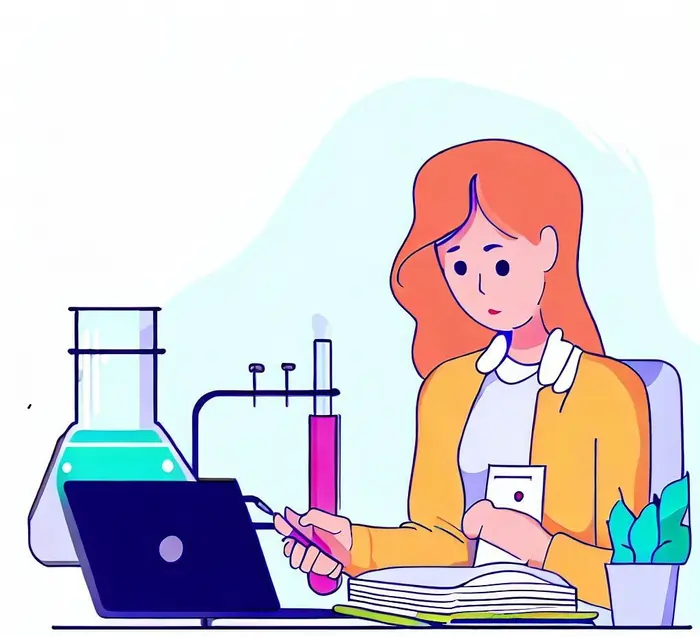Greetings and welcome to our thorough blog post on the fascinating subject of disposable and non-disposable chemical engineering assignments. Throughout their academic careers, aspiring chemical engineers frequently encounter various types of assignments, and mastering the distinctions between disposable and non-disposable assignments is crucial for success in the field of chemical engineering assignment.
Disposable homework concentrates on particular chemical engineering ideas or subjects. They give students the chance to solidify their foundational knowledge and use it in real-world problem-solving situations. These assignments are frequently shorter in length and finished individually, enabling students to evaluate their development and specifically improve their skills.
Non-disposable assignments, on the other hand, present more intricate problem statements that demand in-depth research, analysis, and critical thinking. These tasks necessitate a deeper comprehension of several chemical engineering subfields and frequently require teamwork, mimicking actual engineering projects. Assignments that can't be thrown away encourage students to do in-depth research, analyze data, and combine information from various sources.

Unravel Chemical Engineering's Disposable Assignments:
Let's start our in-depth analysis with a look at some disposable assignments. Disposable assignments are coursework tasks given to students that, once graded, serve no further purpose. Typically, these tasks involve problem-solving. These assignments are designed to aid students in comprehending the course material, gaining practical problem-solving skills, and better understanding the fundamentals of chemical engineering.
Disposable assignments can help students improve their technical knowledge of and aptitude for chemical engineering principles. They give students the chance to put their theoretical learning to use in real-world situations, strengthening their comprehension of the material. In highly complex subjects like thermodynamics, fluid mechanics, and reaction engineering, where the application of concepts to real-world problems is crucial for comprehension, this makes disposable assignments invaluable for engineering education.
Disposable assignments give students a place to learn, practice, and master a subject, but they typically have no use after the course is over. These assignments are frequently thrown away, forgotten about, or ignored after being graded, hence the term "disposable."
Investigating Non-Disposable Tasks in Chemical Engineering:
Chemical engineering non-disposable assignments, on the other hand, are tasks that go beyond the classroom and continue to be valuable and relevant even after they are finished. Non-disposable assignments, in contrast to their disposable counterparts, are intended to promote real-world connections, promote original research, and promote creativity, and innovation.
Non-disposable assignments may include initiatives or duties that benefit the larger engineering or scientific community. Students might be required to, among other things, develop a simulation model for a novel chemical process, suggest a strategy for waste management in an industrial setting, or write a review of recent developments in a particular area of chemical engineering. Once these assignments are finished and graded, they may have used for people outside of the particular class or even the academic institution. They could be used as references for additional research, presented at conferences, published in scholarly journals, or even put into practice in actual engineering situations.
Non-disposable assignments also give students a chance to experience actual chemical engineering problems, which improves their capacity to synthesize knowledge from various disciplines, use critical thinking, and come up with novel solutions. Additionally, they foster a sense of accomplishment and satisfaction in students because they realize their work may be useful outside of the classroom and may benefit the larger engineering community.
Education in Chemical Engineering: Balancing Disposable and Non-Disposable Assignments:
Non-disposable assignments encourage creativity, innovation, and the capacity to apply knowledge in real-world contexts, whereas disposable assignments are primarily focused on developing students' fundamental understanding and technical skills. Both of these assignment types have significant pedagogical value in Chemical Engineering education, and they should be strategically balanced to provide a well-rounded educational experience.
Early use of disposable assignments in the curriculum allows teachers to guarantee that students have a solid grasp of the core ideas. As students advance, the addition of non-disposable assignments may completely alter the learning environment by providing a platform for interdisciplinary integration, in-depth research, and creative applications.
Additionally, non-disposable assignments frequently promote community service and active learning among students. They can instill a stronger sense of commitment and dedication to the field by igniting feelings of motivation, accomplishment, and belonging. The learning process can be improved by striking a balance between disposable and non-disposable assignments, making them more interesting, rewarding, and applicable.
Disposable and non-disposable assignments are used in the professional world outside of the classroom:
It is noteworthy that the idea of disposable and non-disposable assignments extends beyond the world of academic education and permeates the field of Chemical Engineering. Professional engineers frequently face difficulties that resemble the design of both disposable and non-disposable assignments.
To ensure a plant runs smoothly or to identify issues, a chemical engineer might be required to perform standard process calculations or simulations, which are comparable to disposable assignments. Although these tasks are essential for upholding the status quo, once they are finished they might not have any further significance or value.
However, non-disposable assignments would exhibit characteristics of developing a new process, designing a piece of equipment, or researching creative waste reduction techniques. Similar to non-disposable assignments, these tasks are valuable in the long run and have the potential to have an impact on Chemical Engineering as a whole.
Looking Ahead: Assignments in Chemical Engineering Education in the Future:
The importance of both disposable and non-disposable assignments will only grow as we look to the future of Chemical Engineering education. The balance between these two types of assignments will be essential in determining how future engineers are shaped, especially as applied learning and research are being emphasized more and more.
The introduction of online platforms, virtual simulations, and digital communication through technology will further alter the nature of these assignments. Online tests, computer-simulated lab exercises, and digital problem-solving exercises are all examples of disposable assignments.
With the aid of digital platforms, non-disposable assignments might involve partnerships with businesses to solve real-world problems, international peer collaborations, and contributions to open-source projects. The possibilities are endless, and the nexus between pedagogy and technology suggests that chemical engineering education will have a thriving and dynamic future.
Teachers can better prepare their students for the demands of the constantly changing Chemical Engineering landscape by helping them understand the differences between disposable and non-disposable assignment characteristics. These assignments, which were thoughtfully created and wisely implemented, will continue to mold the minds of aspiring Chemical Engineers, creating a dynamic, interesting, and—most importantly—deeply fulfilling learning environment.
Disposable and non-disposable assignments are both crucial to the holistic development of chemical engineers, despite their differences in longevity and overall impact. The student's journey from being learners to becoming innovators and contributors in the field of Chemical Engineering is facilitated by them as two sides of the same educational coin.
Assignment-Based Learning from a Practical Perspective:
It is crucial to investigate why these kinds of assignments have evolved into a staple of Chemical Engineering's pedagogical strategy. The goal of both disposable and non-disposable assignments is to assist students in drawing connections between theory and practice and help them comprehend the practical applications of their theoretical knowledge.
Disposable assignments frequently require extensive problem-solving, which enables students to become proficient in mathematical models, chemical equations, and engineering calculations. They assist students in comprehending the complex dynamics of chemical processes and reinforce the theoretical concepts covered in class. Disposable assignments are designed to make sure that students can correctly apply their academic knowledge to real-world situations and comprehend the logic behind different engineering principles.
Non-disposable assignments take things a step further by emphasizing both the creation and application of new knowledge. They help students develop their ability to innovate, solve challenging problems, and contribute to societal needs by extending the academic sphere into the real world. The results of non-disposable assignments frequently find use in practical contexts, offering a lasting benefit outside of the immediate classroom environment.
The Function of Teachers in Planning and Executing Assignments:
It is important to recognize the role that educators played in developing and implementing these assignments. To ensure that students advance both technically and innovatively, they are in charge of striking a balance between disposable and non-disposable assignments.
When creating reusable assignments, teachers must make sure that the tasks are consistent with the theoretical information taught in the classes. The assignments ought to be designed to push the students intellectually, stimulate their thought processes, and motivate them to learn more about the subject.
For non-disposable assignments, teachers must take a more comprehensive approach, incorporating real-world problems, and inspiring students to develop creative solutions. These tasks ought to encourage the students' inquisitiveness, encourage research-based thinking, and be creative.
Conclusion:
In conclusion, assignments for chemical engineering students can either be disposable or non-disposable. Each has a different role to play in their education and development. Disposable assignments emphasize enhancing problem-solving abilities, enhancing fundamental knowledge, and allowing students to work independently. These assignments give students a strong foundation on which to build as they advance in their academic careers.
On the other hand, non-disposable assignments provide a more thorough and integrated approach to chemical engineering. They present difficult problems to the students, forcing them to think critically, analyze in-depth, and conduct research. Students gain the teamwork and communication skills necessary for real-world engineering projects by working together on non-disposable assignments.
Both kinds of homework are essential for developing the knowledge and abilities of future chemical engineers. While non-disposable assignments encourage critical thinking, research skills, and collaboration, disposable assignments lay the foundation by reinforcing fundamental concepts. Students must understand the distinctions between these assignment types and modify their strategies accordingly.
The characteristics, scope, and importance of disposable and non-disposable chemical engineering assignments should be understood by students to help them learn as much as possible and apply their knowledge in real-world situations. Future chemical engineers will develop and be successful by accepting the challenges posed by both kinds of assignments.
